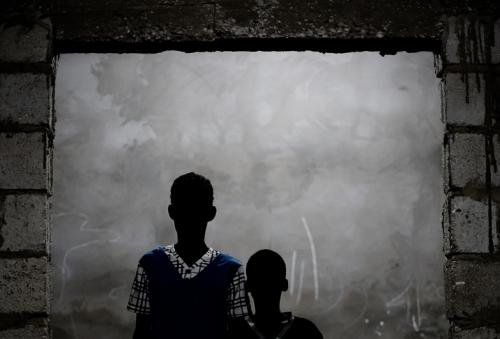Big win for Mauritania slavery victims in African Union ruling
Ruling by the African Union’s committee a major step forward in fight to eradicate slavery in Mauritania, rights groups say.
Minority Rights Group International (MRG) and Anti-Slavery International warmly welcome the landmark ruling of the African Committee of Experts on the Rights and Welfare of the Child (ACERWC) in the case of Said and Yarg Salem against Mauritania.

Said and Yarg were born into slavery in Mauritania. Despite six years’ legal battle they still haven’t seen their former master brought to justice.
The decision in the case of two brothers born into slavery in Mauritania, whose former masters were prosecuted for slavery in the first ever such case in the country, but given extremely lenient sentences, was announced on 26 January 2018 by the ACERWC.
The ACERWC found that Mauritania’s authorities have failed to take adequate steps to prevent, investigate, prosecute, punish and remedy the widespread practice of slavery which particularly affects the state’s ethnic Haratine community, resulting in a situation of impunity.
Ruling that Mauritania’s Anti-Slavery Law does not provide adequate protection against slavery in practice, it found the state to be in violation of its obligations to protect children’s rights under the African Children’s Charter, including a failure to act in their best interest and protect them from discrimination, child labour, abuse and harmful cultural practices, as well as to provide for their survival and development, education, and leisure, recreation and cultural activities.
Mauritania is now required to provide the two child victims with compensation, psychosocial support and education and ensure that all the perpetrators are brought to justice. It must also take wider steps to eradicate child slavery in Mauritania, including providing special measures for child victims and making the elimination of slavery a priority.
‘This ruling has the potential to bring about real change in how Mauritania addresses the criminal prosecution of slavery in Mauritania.’ says Lucy Claridge, MRG’s Legal Director and member of the team presenting the case to the Committee in 2016. ‘MRG has supported this case since 2011 as we believe that the law can be used to improve lives. We now urge the Mauritanian government to fully respect the ruling and set about putting the ACERWC’s recommendations in to action.’
Acting on behalf of the Salem brothers, MRG and Mauritanian NGO SOS-Esclaves took the case before the ACERWC, a body of the African Union whose role is to urge states to comply with their obligations under the African Charter on the Rights and Welfare of the Child. The case was first heard by the ACERWC on 27 October 2016, and the Committee carried out a country visit in March 2017 to further investigate the allegations.
“I’m really happy for the boys; they’ve been waiting so long for justice”, Said Jakub Sobik, a spokesman for Anti-Slavery International, which helped bring the original case into the Mauritanian courts in 2011 and supported the current case.
“This ruling offers recognition that they were wronged and that they were failed by their own government. The message from African Union to the Mauritanian Government is extremely clear: ensure that their masters are prosecuted with the full force of the law.
“I’m also happy for all the other survivors of slavery who are waiting for justice as their cases get ignored by Mauritanian courts. If the Mauritanian Government is unwilling to prosecute slavery of its own volition, we will have to make it happen through international pressure.”
Source:Anti-Slavery
- 330 reads
Human Rights
Ringing FOWPAL’s Peace Bell for the World:Nobel Peace Prize Laureates’ Visions and Actions

Protecting the World’s Cultural Diversity for a Sustainable Future

The Peace Bell Resonates at the 27th Eurasian Economic Summit

Declaration of World Day of the Power of Hope Endorsed by People in 158 Nations

Puppet Show I International Friendship Day 2020

